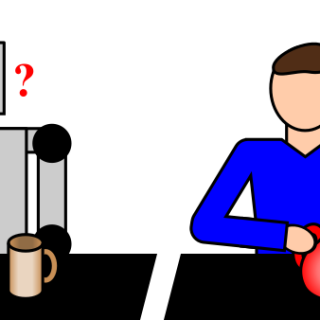Jens Kober about the project Teaching Robots Interactively:
"Programming and re-programming robots is extremely time-consuming and expensive, which presents a major bottleneck for new industrial, agricultural, care, and household robot applications. My goal is to realise a scientific breakthrough in enabling robots to learn how to perform manipulation tasks from few human demonstrations, based on novel interactive machine learning techniques.
Current robot learning
approaches focus either on imitation learning (mimicking the teacher’s
movement) or on reinforcement learning (self-improvement by trial and
error). Learning even moderately complex tasks in this way still
requires an infeasible number of iterations or task-specific prior
knowledge that needs to be programmed in the robot. To render robot
learning fast, effective and efficient, I propose to incorporate
intermittent robot-teacher interaction, which so far has been largely
ignored in robot learning although it is a prominent feature in human
learning.
This project will deliver a completely new and better approach: robot learning will no longer rely on initial demonstrations only, but it will effectively use additional user feedback to continuously optimise task performance. It will enable the user to directly perceive and correct undesirable behaviour and to quickly guide the robot toward the target behaviour.
In my previous research I have made ground-breaking contributions to the existing learning paradigms and I am therefore ideally prepared to tackle the threefold challenge of this project: developing theoretically sound techniques which are at the same time intuitive for the user and efficient for real-world applications.
The novel framework will be validated with generic real-world robotic force-interaction tasks related to handling and (dis)assembly. The potential of the newly developed teaching framework will be demonstrated with challenging bi-manual tasks and a final study evaluating how well novice human operators can teach novel tasks to a robot."
